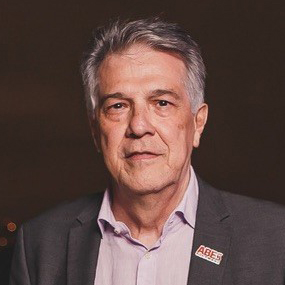I was speechless when I was struck by acute laryngitis, being completely speechless, just like that. And the situation I was in was horrible. I had about 15 days of meetings and closing deals with important clients. I needed my voice, because the interlocution was essential for the success of these businesses, and I, only myself, had the task of speaking and presenting.
With no choice of not being able to speak, it was the moment for my interlocutors to collaborate with me and listen to me in silence to understand my words. With no time to worry about what to say, or a clever joke to interpose, I was also able to absorb the conversation of others to delight in listening and being silent, to preserve the voice that remained.
I used my voice that way and, in some cases, I was more heard than if I had a normal voice. I used Dave Kerpen's concepts to achieve this feat.

You try to save time by speaking faster than any human being could understand. However, there is a lack of connection and opportunities are lost. I only had 10 minutes many times ... I lost some and won others.
“Listening is the most critical business skill of all,” says Bernie Ferrari, author of “The Power of Listening” and dean of the John Hopkins B school, where I had the opportunity to attend an executive meeting for two weeks. "The difference between great business leaders and mediocre ones, is the ability to listen."
You mean we have to stop and listen? Yes. I belong to the multitask (multitasking) world, but grudgingly admit that I am a more effective listener when I focus on it, concentrated and without being distracted.
Bernie says that you make better decisions when you listen well, because you are absorbing new ideas and improving your critical thinking skills. The best hearing comes when you spend more time listening and you can then ask pertinent probing questions when you engage in dialogue.
I was in a workshop on the “Power of Listening”. When properly exercised, this power gives us an opportunity to be more attentive, and in return, we even learn some lessons.
Try to be quiet in an argument and watch everyone, and you will see how much you hear of good and bad. There, you sift through all the information you have heard and there will still be great learnings.
SEE VIDEO: A famous violinist that nobody heard. http://www.youtube.com/watch?v=ctr2SxRwhwg.
The opinion presented in this article is the responsibility of its author and not of ABES - Brazilian Association of Software Companies.













